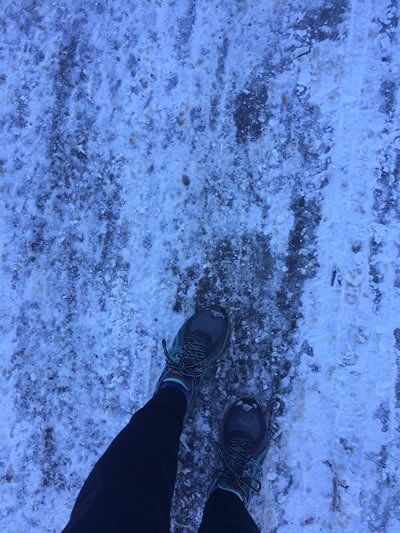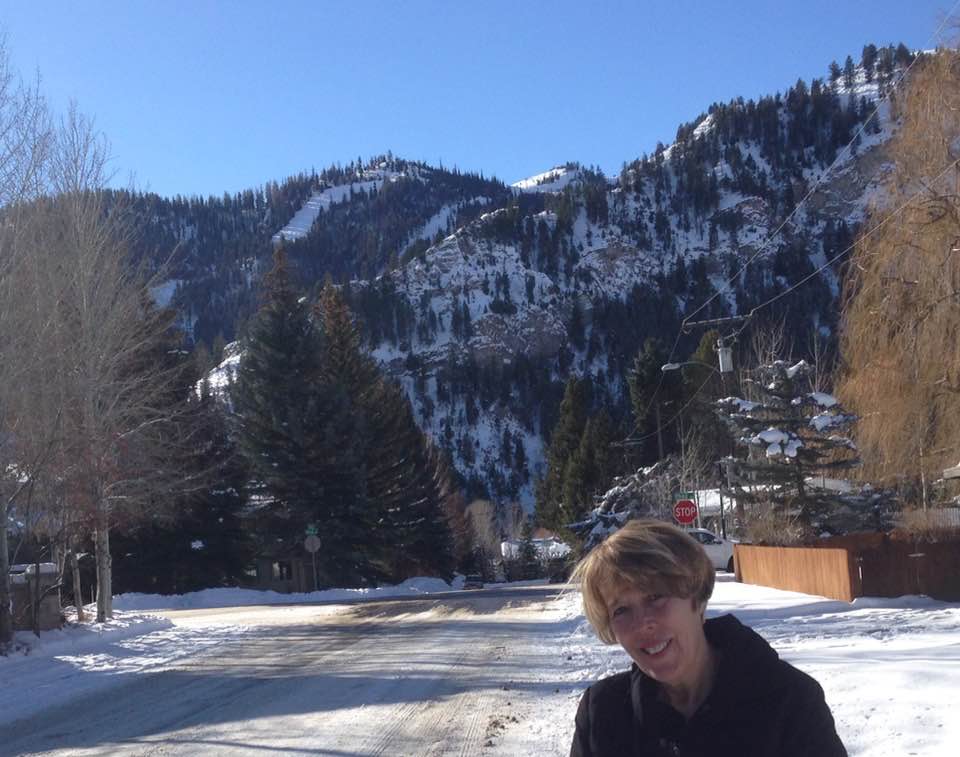Finding Center
“I find complete balance within” - a centering thought from Deepak Chopra
When I’m focused on my troubles, you can knock me over with a feather. Interesting.
Over the holidays, I spent a few days in a beautiful mountain town, Ketchum, Idaho. There’s something magical about small high-altitude towns. It’s relaxing and energizing at the same time, which I attribute to the thin, cold, clean air. I can happily spend hours walking along the quaint streets as I take in the twinkling lights, snow-laden trees, and majestic mountains. Until I hit a patch of ice, that is. Then the enchanting surroundings disappear and all of my attention zooms down to my feet.
On dry, solid ground, I don’t often think about my feet. After many years of successful walking, balance is rather automatic. But on ice, when one false move might throw off my equilibrium and leave me sprawled on the very hard ground, I focus on each step. I’m nervous and unsure of myself in the unfamiliar conditions, so I test my traction, make sure my footing is aligned with my center of gravity, and then very hesitantly commit.
My extreme caution looks a little silly next to the “locals”, who sail over the ice without a care. I’m sure at some time in their lives they experienced insecurity, but they’ve developed some comfort in their sense of balance and agility. Through experience, they can feel when they are unstable and automatically adjust and re-center as they confidently stride across the ice. Unlike me, they trust their ability to respond to the conditions and their footing no longer grabs their undivided attention.
State of mind is closely tied to physical balance. It’s very likely that my mental fear of falling contributes just as much to my caution and need to focus intently on each step as my lack of physical agility does. I was once led through a simple little activity which demonstrated the truth of this. Standing and facing a partner, I was instructed to close my eyes and center myself by focusing on my physical center of gravity - typically a point located about four inches below the navel. After about 30 seconds, my partner used a light force and gently pushed my shoulders. I felt the push, but it didn’t have an impact. Next, still standing and facing my partner, I was instructed to think about something that had me worried - a conflict or difficult problem I was struggling with. Again, after about 30 seconds, my partner used the same light force and gently pushed my shoulders. This time I almost toppled over and had to step back to regain my balance. My state of mind had a significant influence on my physical balance. When I’m focused on my troubles, you can knock me over with a feather. Interesting.
John O’Donohue suggested that in addition to being aware of your own center, you must also find the center of the challenges you encounter in life. “If you do not learn how to carry it, even a small burden can tread you into the ground. Only by listening to the burden that has come to you will you be able to discover its secret structure.... If you attend to it, the point of equilibrium will gradually reveal itself.” ( Eternal Echoes, p. 156 )
The importance of feeling centered and balanced and trusting is true in all aspects of life, not just when walking on slippery surfaces. Emotional and mental balance are connected to physical balance. And finding a point of equilibrium in the challenges we face is essential. Unfamiliar terrain, in the figurative as well as literal sense, demands that we align with our center and balance ourselves to maintain a stable foundation from which we can venture forth. To live deeply, whole-heartedly, and joyfully, to take personal risks, to be present in the moment, to live profoundly, one must find the center, balance, and trust.
For me, this is the value of daily practices such as meditation, reflection, silence, time in nature: To affirm our core essence and align us with our center; To guide us toward balance and self-trust; To allow us to engage with the magnificent world around, and not have to focus on our feet.
To live deeply, whole-heartedly, and joyfully, to take personal risks, to be present in the moment, to live profoundly, one must find the center, balance, and trust.
Recommended Resources
Eternal Echoes by John O’Donohue
Oprah & Deepak 21-Day Meditation Experiences (free when offered)
Kelly Anderson is a monthly contributor to Profound Living. Learn more about her on our Contributors Page.
To receive all our Profound Living posts , please subscribe (it won’t cost you anything but time to read): https://www.profoundliving.live/
Please consider following the Profound Living Facebook page
And... please share this essay with others who might find it beneficial.
Finally, for something more wide-ranging, check out The Profound Bartender.












